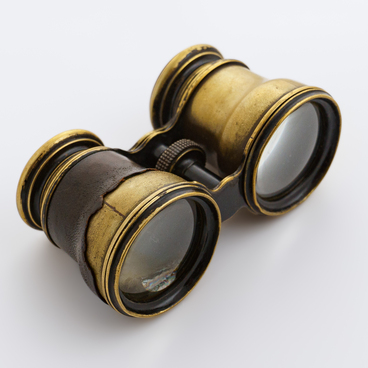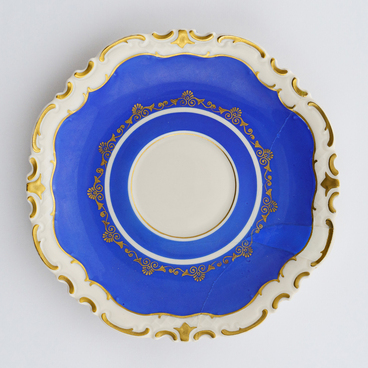Bulgakov appreciated good stationery and kept everything necessary for writing on his desk: paper, a paperweight, an inkwell, pens, a brush to sweep sand off manuscripts (sand was used to sprinkle freshly written text so that the ink would dry faster).
The small folding inkwell in the form of a globe, presented in the exhibition, was made at the end of the 19th century. It is not known where and how Bulgakov acquired it and how long the writer used it, but traces of ink have been preserved inside. Bulgakov tried to surround himself with antique things: apart from the inkwell, he had an antique telescope, theater binoculars, candelabra presented by Bulgakov’s close friend Nikolay Lyamin, and other items of a similar kind.
Bulgakov was not allowed to go abroad, and he traveled in the Caucasus and liked to spend holidays by the sea. “And me? The wind moves the leaves near the skin clinic, my heart sinks at the thought of rivers, bridges, and seas. A gypsy moan in my soul. But it’ll pass. I guess, I’ll be sitting on Pirogovskaya and writing comedy (for Leningrad) all summer. There will be heat, clatter, dust, narzan water.”Bulgakov wrote to his friend, philologist and historian of philosophy Pavel Popov in May 1933.


